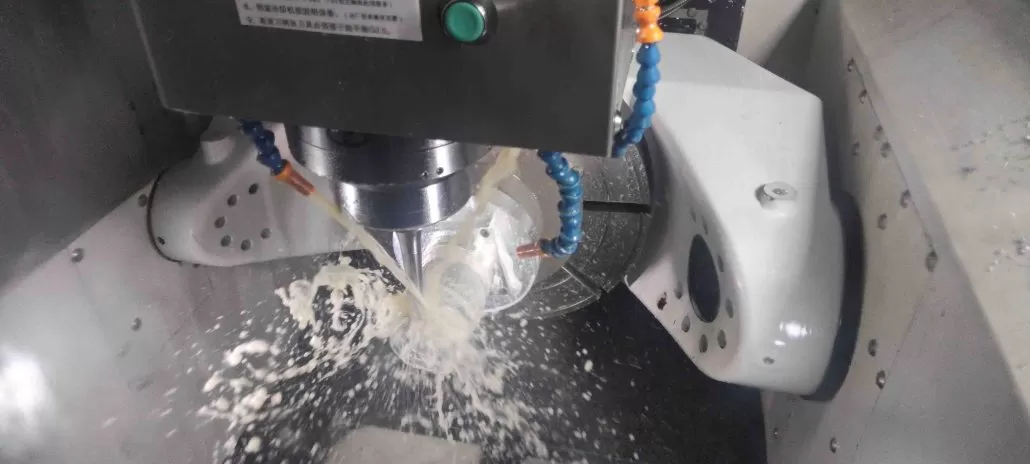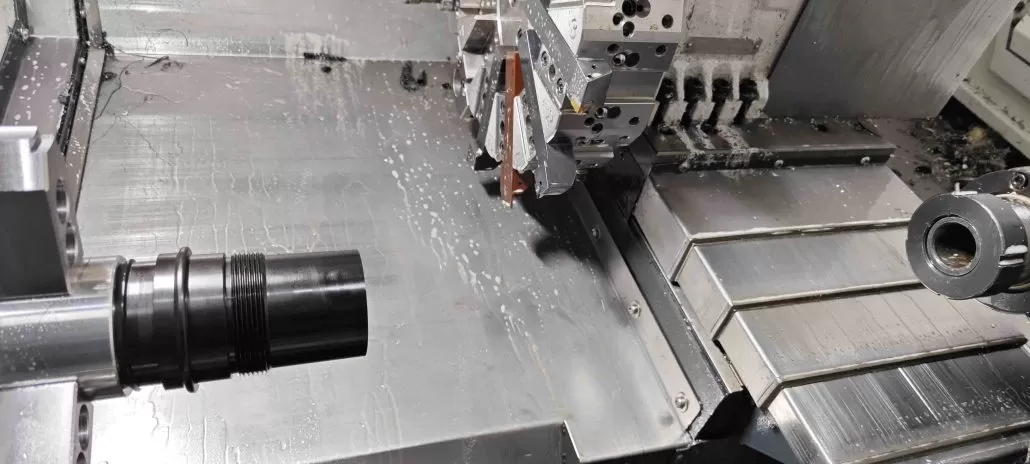In today’s competitive manufacturing landscape, precision is everything. The ability to produce parts with high accuracy and consistency is critical to staying ahead of the competition. That’s why CNC milling parts have become a go-to solution for many manufacturers looking to unlock their potential for precision manufacturing. In this article, we’ll take a closer look at what CNC milling parts are, how they work, and the benefits they offer.
What are CNC Milling Parts?
CNC milling is a manufacturing process that uses a computer-controlled machine to remove material from a workpiece. This process is used to create a wide range of parts, from simple objects like bolts and screws to complex parts like airplane engines and medical implants.

When it comes to CNC milling parts, there are several types of materials that can be used. These include metals like aluminum, brass, and titanium, as well as plastics like polycarbonate and ABS. Depending on the intended use of the part, the material selection is crucial in determining the function and durability of the finished product.
So, why is CNC milling important? CNC milling parts offer several significant advantages over traditional manufacturing processes, including:
- Precision: CNC milling machines are incredibly precise and can fabricate parts with incredibly tight tolerances, meaning that the finished product is more accurate and reliable.
- Speed: CNC milling machines can produce parts much faster than traditional manufacturing methods, which means that businesses can get more done in less time.
- Flexibility: CNC milling machines can create complex shapes and designs that would be impossible to create using manual machining techniques.
- Consistency: Because CNC milling machines are computer-controlled, they can produce parts that are consistent and uniform, meaning that every product will be the same.
CNC milling parts are a critical part of the manufacturing industry. They offer precision, speed, flexibility, and consistency, which are all essential for creating high-quality products.
How Do CNC Milling Machines Work?
CNC milling machines use a variety of cutting tools, including drills, end mills, and lathes to remove material from a workpiece. These machines can produce a wide range of parts, from simple shapes to complex geometries.
The process begins with a CAD (Computer-Aided Design) file that contains the 3D model of the part to be produced. This file is then translated into G-code, which is a programming language that tells the machine how to move the cutting tool to achieve the desired shape. Once the G-code program is loaded into the machine, it begins the milling process, following the programmed instructions to remove material from the workpiece until the final part is produced.
What Are the Benefits of CNC Milling Parts?
CNC milling parts offer a range of benefits for manufacturers looking for precision and consistency in their parts production. Some of the benefits include:
- High Accuracy: CNC milling machines can produce parts with incredibly high accuracy and tight tolerances, ensuring that each part is of consistent quality.
- Fast Production: Since CNC milling machines are computer-controlled, they can produce parts quickly and efficiently, reducing production times and costs.
- Versatility: CNC milling machines can produce a wide range of parts, from simple to complex geometries, and can work with a variety of materials, including plastics, metals, and composites.
- Automated Production: CNC milling machines can often operate around the clock, without the need for a human operator, increasing efficiency and reducing labor costs.
- Scalability: CNC milling parts can be produced in large quantities, ideal for both small and large production runs.
CNC milling parts are an essential tool for manufacturers looking to produce high-precision parts with consistency and efficiency. By using computer-controlled milling machines, manufacturers can unlock their potential for precision manufacturing with the benefits of high accuracy, fast production, versatility, automated production, and scalability. If you’re looking to take your manufacturing to the next level, CNC milling parts are the way to go.

Why Are CNC Milling Parts Essential to the Manufacturing Industry?
Here are some of the reasons why CNC milling parts are indispensable to the manufacturing industry:
1.Precision and accuracy
CNC milling parts are known for their precision and accuracy. They can perform intricate and complex tasks with incredible precision, ensuring that the finished product is accurate and meets the required specifications. This precision cannot be achieved through conventional methods.
2.Quick turnaround time
CNC milling parts are known for their quick turnaround time. They can produce a large number of parts in a short amount of time. This is particularly beneficial for large-scale production runs of parts that have strict deadlines.
3.Cost-Effective
CNC milling parts are more cost-effective than traditional manufacturing methods. The use of CNC machined reduces waste and increases efficiency, resulting in lower costs for the manufacturer.
4.Greater design flexibility
CNC milling parts allow for greater design flexibility. With traditional methods, certain shapes and designs cannot be produced. With CNC milling, however, the design possibilities are endless.
5.Consistency in Quality
CNC milling parts produce consistent quality parts. Once a design has been programmed, the machine will produce parts that are identical, regardless of the batch size. This consistency is essential for sensitive industries such as medicine and aerospace.
FAQ
Costs for CNC milling parts can vary widely depending on several factors, including the complexity of the part, the type of material being used, and the volume of parts being produced. In general, CNC milling can be more expensive than traditional manufacturing methods, but the benefits in terms of precision and flexibility often make it a worthwhile investment for industry professionals.
CNC milling can handle a wide range of materials, from metals like aluminum and steel to plastics and composites. Some of the most common materials used in CNC milling include brass, copper, titanium, and carbon fiber.
To ensure the highest quality results with CNC milling parts, it’s important to work with a reputable manufacturer. Look for a manufacturer that has experience working with your specific industry and that uses the latest equipment and software to produce parts. Additionally, be sure to communicate your specific requirements and tolerances to the manufacturer to ensure that the finished parts meet your specifications.

